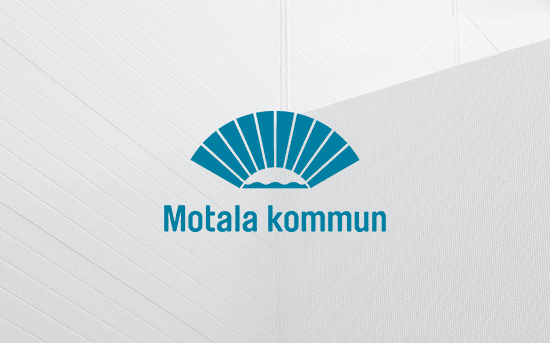Motala Municipality, with almost 5000 employees, could quickly see that the process for onboarding employees was a target for streamlining via automation. The onboarding process consists of several stakeholders, departments, and information sources that must be coordinated. With many manual steps in the process, complexity and challenges arose.
In an organization that handles large quantities of sensitive data, permissions and access to different systems are of the utmost importance. Education and healthcare are two of the most sensitive areas, and Motala must ensure the integrity of all its residents. In their first attempt to automate, they analyzed whether any of the existing systems could be up to the task. The payroll system was the closest to achieving their objectives, but only if an additional module was added to the system. However, the challenge was that this particular add-on only gathered data for a new employee, a relatively small step in the entire process, which meant that the results would be underwhelming.
We were reviewing different areas for improvement in an innovation project and identified a need to become more digital and supportive to streamline our ways of working, and the onboarding process fit the right criteria.”
Ambjörn Lindqvist, Chief Digital Officer
Motala first came in contact with InRule through an innovation project. InRule Process Automation was well-suited for several initiatives Motala was running. One of these initiatives was to free up time and reduce administrational work for managers.
We could see that managers were up to their ears with administrational work, and it was often connected to the onboarding of new employees. Part of our job is to provide our coworkers with the right tools to become efficient in their work. When looking at the onboarding process, it became apparent that we could make both quick and significant improvements.
Åsa Almsin, Payroll Manager
Motala’s onboarding before InRule
Multiple, seemingly easy steps and several departments and roles that need to interact in complete harmony often lead to a complex equation. Motala was no exception to that rule.
Initially, a form would be filled in with information about the employment. This form could be digital, but in some cases, it was a physical form that needed to be sent via mail. They needed to establish permissions, access rights, order office material, and set up user accounts in the latter stage. A manager, therefore, had to contact several different departments to accommodate this.
We had an evident ambition with InRule Process Automation. That one entry could handle all areas, so coworkers no longer had to chase each other for information.
Åsa Almsin, Payroll Manager
Motala has high standards when it comes to information security. Since they manage large volumes of sensitive data that must remain secure, working in a structured manner when granting permissions and access is a top priority. At the same time, every new employee should be productive on the first day. However, before implementing InRule Process Automation, it wasn’t uncommon for a new employee to have to wait several weeks for the correct access rights and work material.
We followed some new employees to investigate how their onboarding process went. In some extreme cases, they had to wait for 2-3 weeks before everything was in order. It could be missing keys to the office or lacking specific permissions.
Åsa Almsin, Payroll Manager
Implementing the new solution in InRule
The challenges within Motala’s ways of working provided the vision and motivation to put a solution in place quickly. As a result, Motala utilized InRule’s solution architects from the start to learn best practices and learn more about the platform itself.
We received great support from InRule, and it helped us get out of the starting blocks running.
Åsa Almsin, Payroll Manager
After an initial meeting where Motala Municipality clarified what was needed, it only took a few weeks before the solution was live. The new ways of working were implemented, and the onboarding process was automated.
When implementing new systems into an organization, it is often the first iteration or application that takes the longest to implement. A new mindset is needed, and this time, Motala turned to InRule’s solution architects for help and to learn from best practices.
We had a lot of people involved in the development of the automated onboarding process. The process affects several roles, but we also wanted feedback from everyone to get it right and optimize the solution for the people who use it. One lesson for us is to shrink the steering group to be more agile in development.
Ambjörn Lindqvist, Chief Digital Officer
Motala’s goal is still to build, manage and refine business applications themselves. They are not far off from realizing success; Motala is rapidly starting to understand the platform and getting comfortable with developing new solutions on its own.
Integrating business applications
One of the most integral reasons Motala chose InRule Process Automation was integrations with other systems. Multiple parts need to coordinate in an onboarding process involving recruitment software, business systems (ERPs), finance systems, etc. To make the automated process efficient, you must also integrate the different software.
We’re saving an enormous amount of time since we have these integrations in place. Previously, coworkers needed to chase each other for information, whereas now, everything is available in one place.
Ambjörn Lindqvist, Chief Digital Officer
An additional reason why Motala chose InRule Process Automation was the ability to visualize and map out a process and develop a functioning business application.
We evaluated several different systems, and InRule process automation was the only platform that would allow us to integrate with other software, as well as model the process and develop ready-to-use business applications.
Åsa Almsin, Payroll Manager
Furthermore, the list function is also a crucial part of the platform. Motala can quickly navigate the process by color-coding different stages by creating its lists. If a task is done, it’ll show up as green, and if it’s yet to be done, it’ll show up as red. A classic traffic light, if you will. This has, by and large, eliminated the internal hunt for information, and the responsible manager can quickly check the status of a specific task.
Result & value
Before Motala implemented InRule Process Automation, a typical case of onboarding a new employee took approximately 6 hours of administrative work from a manager. Today, that number has dropped to only one hour—an 83% reduction in time spent. Since Motala handles roughly 2,500 onboardings each year, the time savings are equal to around 12,500 hours yearly. Hours now spent on value-added work such as strategic planning, improvement ideas within the municipality, and perhaps above all, taking care of employees instead of managing their data.
We’ve conducted follow-ups with several managers and administrators, and we saw a significant change. Both in time-savings and their attitude toward the process itself.
Åsa Almsin, Payroll Manager
Information quality has also dramatically improved. The manual handling that dominated the process resulted in six out of 10 cases requiring additional intervention. Today, that number is close to zero; mandatory fields and clearly defined guidelines make it easy to do things right.
An advantage of an efficient and well-functioning onboarding process is that a new employee can be productive on the first day. That has dramatically improved since the introduction of InRule Process Automation.
We can open user accounts and provide new employees with the correct tools even before they’ve started. That provides us with better conditions for educating and preparing for the arrival of a new coworker.
Ambjörn Lindqvist, Chief Digital Officer
Coworkers no longer need to chase down information since everything is stored in the same place.
One result that can’t be directly tied to InRule is that we’ve constructed an entirely new digitalization division and established an organizational unit for process and organizational development within Motala municipality. This has provided us with clear ownership for maintenance, improvements, and development.
Ambjörn Lindqvist, Chief Digital Officer
However, it’s not only numbers and lead-through times that have improved; there are also less quantifiable enhancements to acknowledge. The public sector has had to withstand a reputation of neglecting its systems and tools; in some cases, rightly so. But in Motala’s case, they’re taking a front-seat approach and driving new initiatives paired with the continuous will to improve and stay ahead of the curve. That determination and ambition is something Motala has identified as a competitive edge when it comes to attracting new talent and also a step in the right direction to become more accessible and assist the residents of the municipality.
We need to be considerate of our brand as an employer. We have to be professional and care for our employees, and this is a step in the right direction for us.
Ambjörn Lindqvist, Chief Digital Officer
Another positive outcome has been how Motala reviews its fundamental ways of working. A flawed manual process will still be flawed once digitalized. However, it’s increasingly easy to identify improvement areas when mapping out the process in a digital space. It is a continuous work in progress that will probably never end but will enhance the ways of working with each iteration.
Next step
Having automated the onboarding process, a logical next step for Motala is to automate the opposite: offboarding (i.e., when an employee leaves the organization). Motala prioritizes security, and while offboarding is already a process they are comfortable with, it has yet to be automated.
Similar to the onboarding process, there are significant time savings to be made with automating offboarding, and a structured way to tackle the process would surely help them a lot. Offboarding is an exemplary candidate with the results they’ve identified from automating the onboarding process.
We have the vision and ambition to develop more automated processes moving forward, and InRule process automation is a strategic puzzle piece in our digital platform.
Ambjörn Lindqvist, Chief Digital Officer
Motala’s list of areas and departments that could benefit from similar business applications built in InRule Process Automation is long. They have already identified some top priorities: income support, school transport, and building permit applications.
Furthermore, the digital onboarding process will be refined further and streamlined. At the top of the list is a role-driven function that will simplify for managers to assign correct tools, access, and permissions. These enhancements will also include integrations to other systems that will allow them to follow up, monitor, manage, and archive with greater ease.
We look forward to following and enabling Motala municipality’s automation journey!




